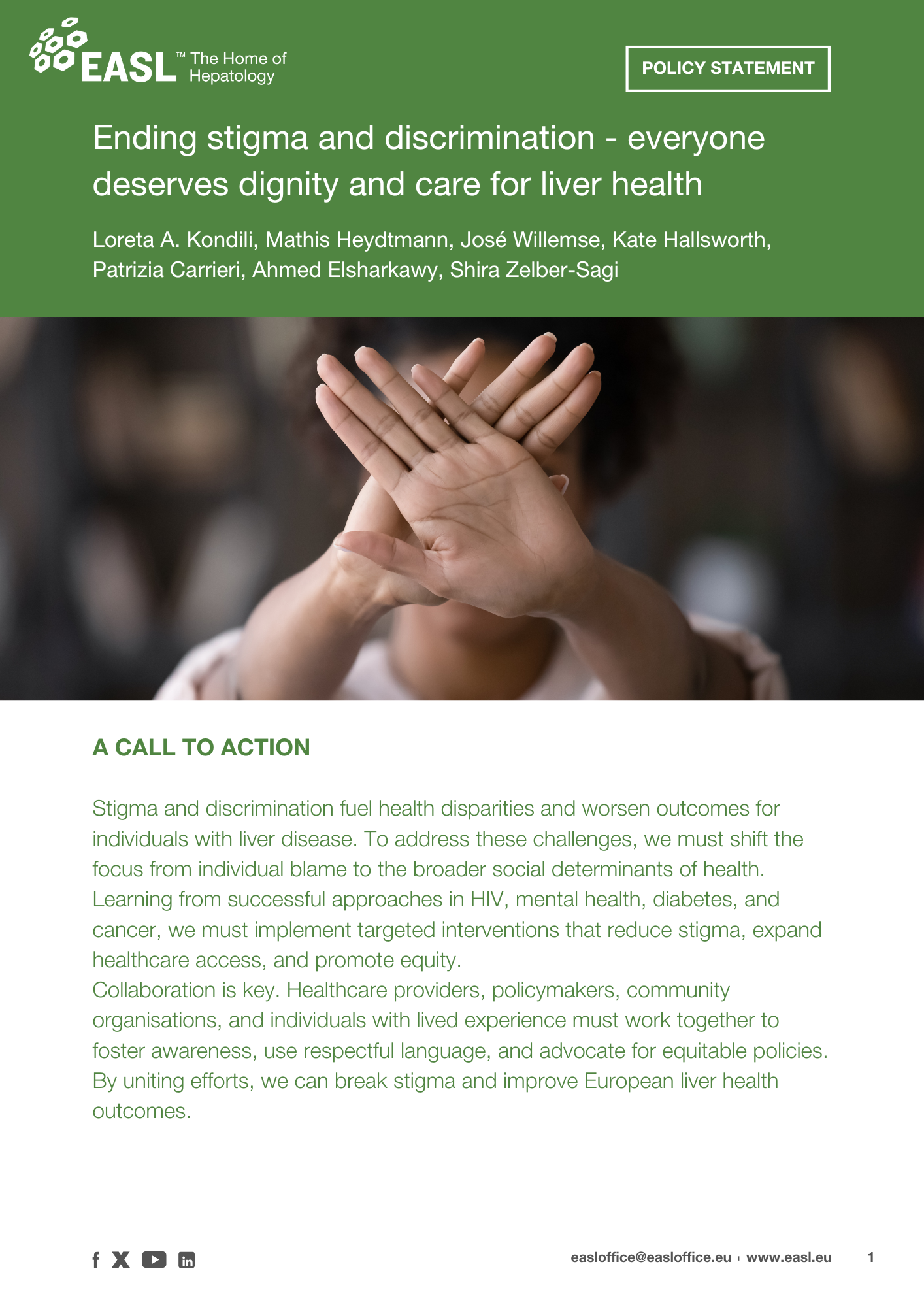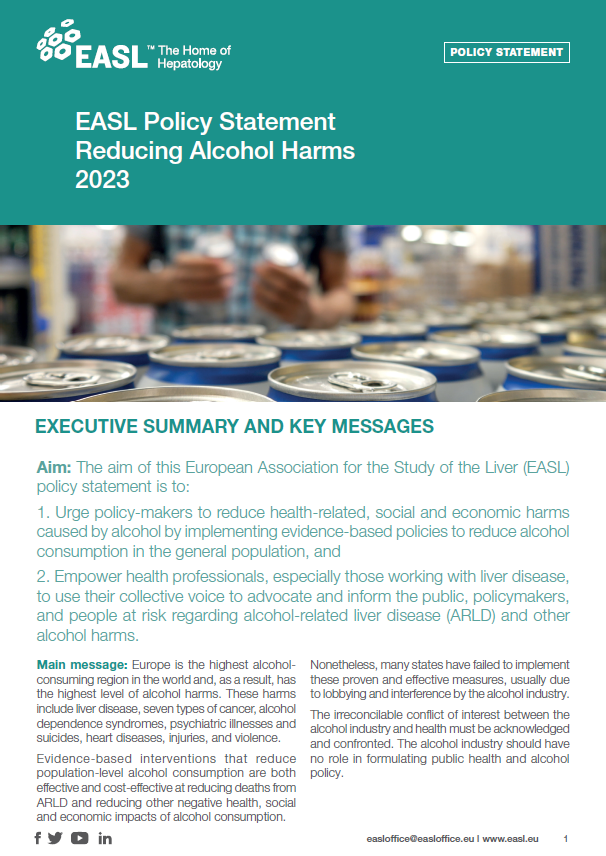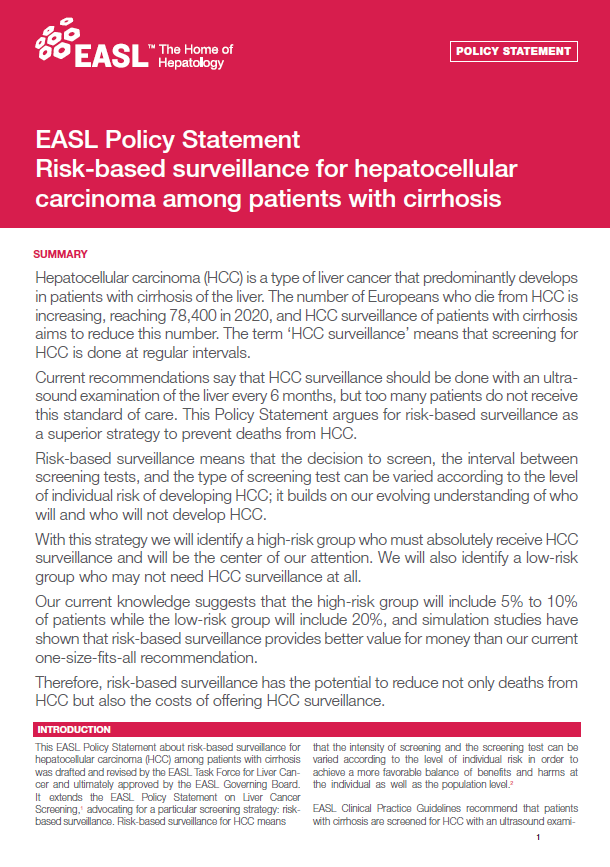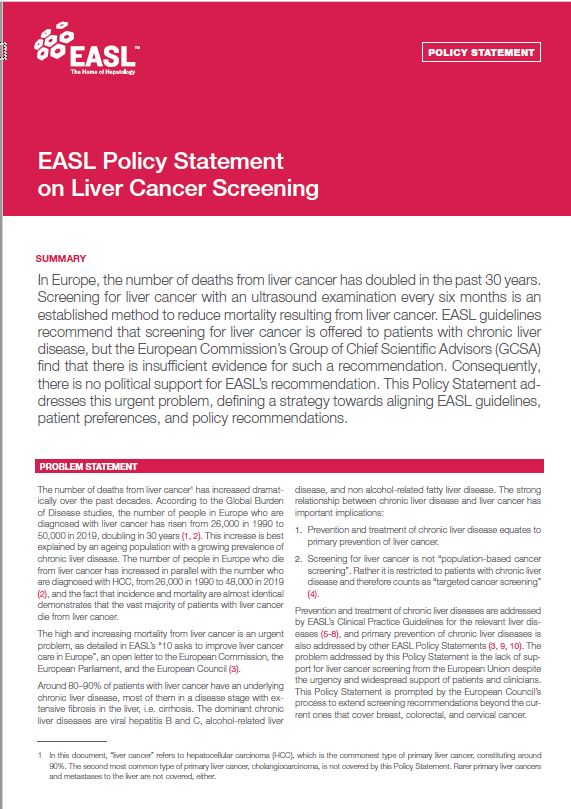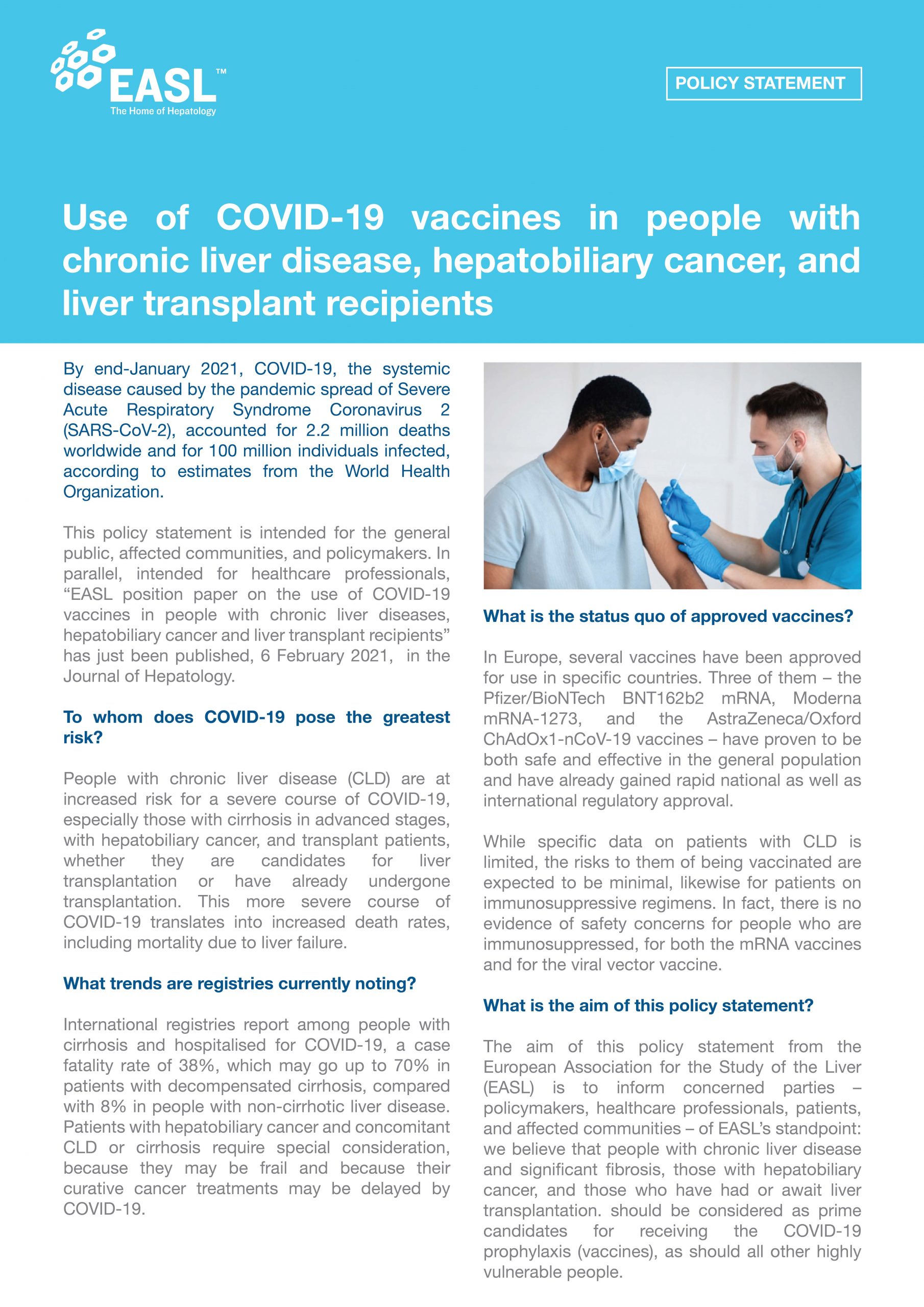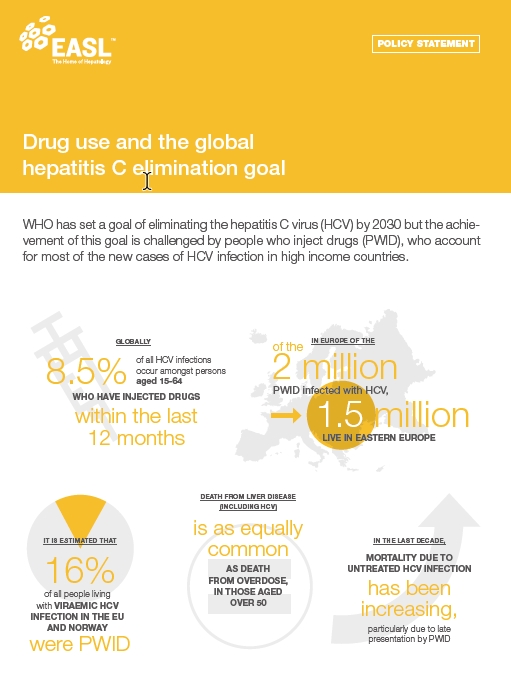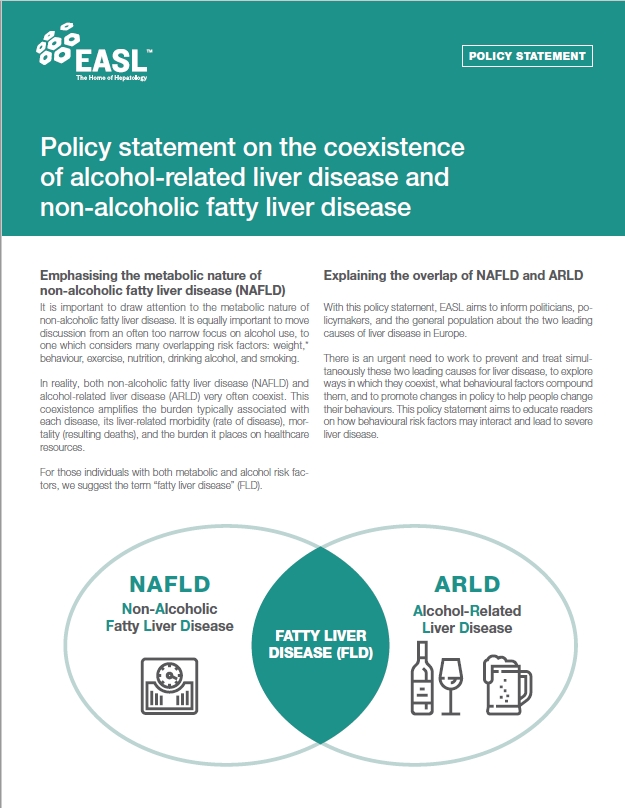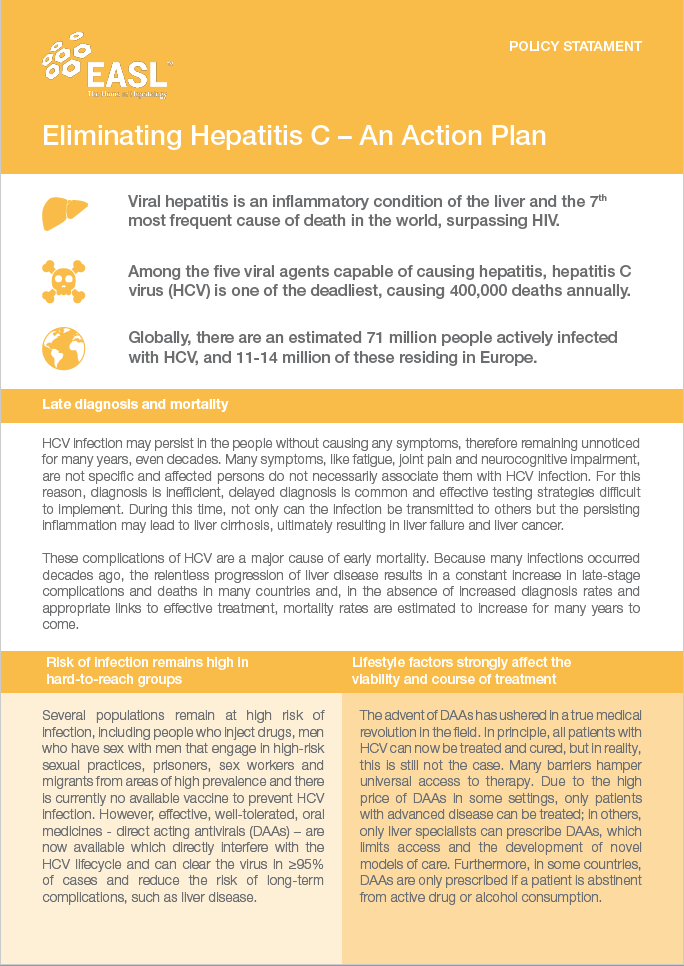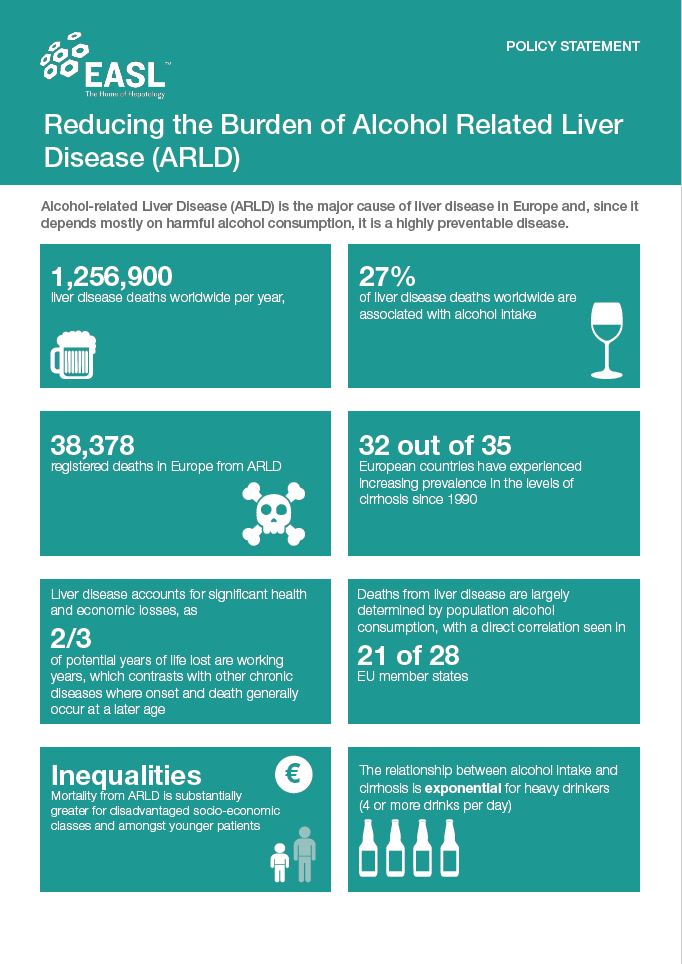Ending stigma and discrimination – everyone deserves dignity and care for liver health
Stigma and discrimination fuel health disparities and worsen outcomes for individuals with liver disease. To address these challenges, we must shift the focus from individual blame to the broader social determinants of health. Learning from successful approaches in HIV, mental health, diabetes, and cancer, we must implement targeted interventions that reduce stigma, expand healthcare access, and promote equity.
Full version of Policy Statement

